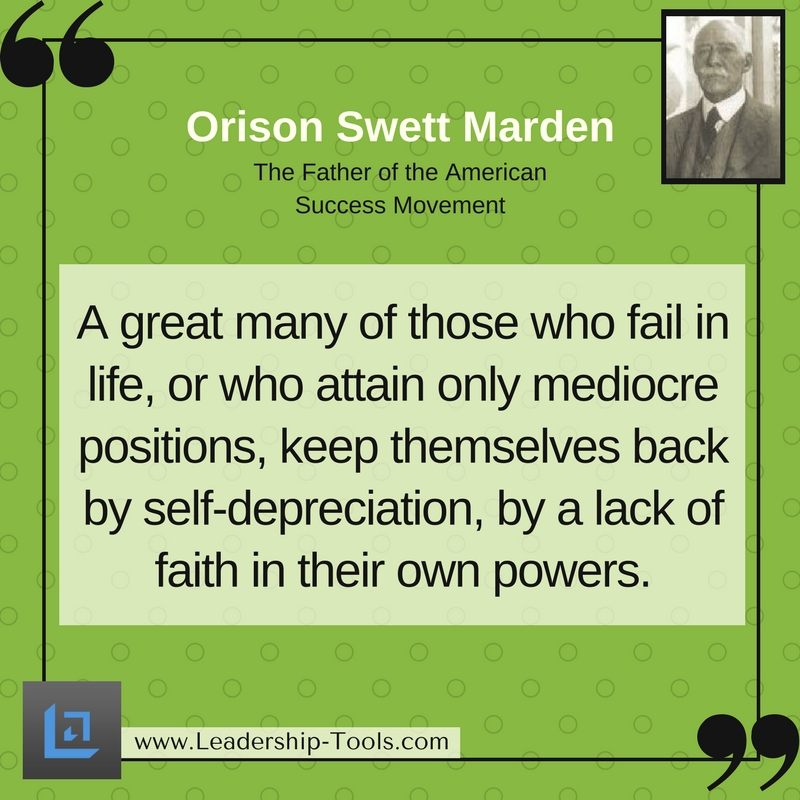- Home
- Self Growth Library
- Prosperity Chapter XX
Prosperity Chapter XX
Thrift And Prosperity
Prosperity Chapter XX:
Benjamin Franklin is one of the most inspiring examples of what the practice of thrift can do for the poorest boy or girl in this land of opportunities.
Son of a poor tallow chandler and soap boiler, the fifteenth child in a family of seventeen, he began at the age of ten to earn his living by working in his father's shop. From these humble beginnings he succeeded, entirely by his own efforts, in becoming one of the world's greatest men — a distinguished patriot, scientist, statesman, inventor, diplomat, philosopher, author, and, last but not least, a noted humorist.
All this he accomplished by the practice of thrift. That does not mean merely economy in financial matters, the wisest expenditure of his income, but the wisest expenditure of his time and efforts in all the business of life.
To Franklin thrift meant not only prudence in business and money spending, but the conservation of health, of energy, of life capital, and the utmost development of all his natural resources. As well as being the thriftiest, Franklin was the most generous of men, and would share his last cent with one who needed it.
One of Franklin's favorite maxims — one that he literally lived by himself — was "God helps those who help themselves." And the first lesson for those who would help themselves to learn is the one that he constantly taught — Thrift.
Headed with a picture of Benjamin Franklin, the great apostle of thrift, a calendar, issued by the Y.M.C.A. in New York, has this slogan — "Make Your Money Mean More."
Then, it gives the "Ten Commandments for a Young Man's Financial Life."
- Work and Earn
- Make a Budget
- Record Your Expenditures
- Have a Bank Account
- Carry Life Insurance
- Own Your Own Home
- Make a Will
- Pay Your Bills Promptly
- Invest in Reliable Securities
- Share With Others
If you "forge these links of success into your character," as the calendar suggests, you will not only develop a self-reliant, vigorous type of manhood or womanhood, but you will also be laying the foundation of enduring prosperity, contentment, and happiness.
Every man knows that it is easier to earn money than to save it; so if there is any one link in the "Ten Commandments" the wage earner, the man or woman of limited means, should pay special attention to, it is the second, "Make a Budget." And here again the Y.M.C.A. is meeting a great need in supplying "A Budget Book With a Conscience," which shows the best way to plan the expenditure of your income, and how to keep an accurate account of your income and outlay.
From Benjamin Franklin to Sir Thomas Lipton, thousands of successful men in every field have given testimony to the value of thrift, or economy, as a wealth and happiness maker.
Lipton says it is "the first great principle of all success. It creates independence, it gives a young man standing, fills him with vigor, it stimulates him with the proper energy; in fact, it brings to him the best part of any success — happiness and contentment."
Unless you make it a cast-iron rule to lay aside a certain percentage of your earnings each week, each month, you will never succeed in becoming a really independent man or woman. You will always be at the mercy of circumstances. No matter how small it may be, or if you have to go without a great many things you think you need, put a portion of your earnings away every year where it will be absolutely safe. You don't know what this will mean to you in case of illness, accident, or some unlooked for emergency when a little ready money may save you great suffering or financial ruin.
The wise expenditure of one's income, however small it may be, involves the same principles as the investment and handling of the business man's capital. And the successful businessman carries these principles into the conduct of all his affairs, his personal and household expenditures as well as those relating directly to his business. Even multi-millionaires have to be thrifty or their millions would take wings.
"The little difference between what we earn and what we spend is capital."
- O.S. Marden
In his little book "Succeeding With What You Have," Charles M. Schwab says: "Not long ago the expenses of running my New York home got exorbitant. I called in the steward and said to him: 'George, I want to strike a bargain with you. I will give you ten percent of the first thousand dollars you save in house expenses, twenty-five percent of the second thousand, and one-half of the third thousand.' The expense of operating the house was cut in two."
I once sent an interviewer to Marshall Field to ask him, among other things, what he considered the turning-point in his career, and his answer was: "Saving the first five thousand dollars I ever had, when I might just as well have spent the modest salary I made. Possession of that sum, once I had it, gave me the ability to meet opportunities. That I consider the turning-point." John Jacob Astor, the founder of the Astor fortune, said that if it had not been for the saving of his first thousand he might have died in the almshouse.
What a pathetic thing it is to see, as we do on every hand, well-educated, well-bred men and women, people with a great deal of ability, but with no money sense, going about with practically nothing ahead of them, between themselves and want, spending everything as they go!
What a pathetic story the charity organizations could tell about people who have been in better circumstances, but who have lost their money, of people who have never been able to lay up anything; to put by anything, for a "rainy day."
What an assurance and sense of protection we get from the consciousness of a little "nest-egg," a little money laid up for the future, something to stand between us and possible emergency or want, no matter what might happen to us.
No one can feel easy or safe who is living from hand to mouth. How many poor people in our great cities are constantly dispossessed, put out on the sidewalk, oftentimes when a parent or some other member of the family is ill, because they can't pay the rent, and this is often due to the lack of early training in thrift and wise economy; no provision made for an emergency; nothing laid up for a rainy day.
I have no sympathy for the rainy-day philosophy of many people; the rainy-day fear and terror, that cheeseparing saving, pinching, stingy policy. Such people make the very rainy day they are trying to guard against. It is the good sense, the wise precaution, which gives a reasonable provision for future needs, or for accidents, or for emergency, or for anything which may impair one's earning capacity, or any loss which may result from fire or flood, that wins our approval.
"Thrift means wise management of what you have — money, time, energies, opportunities."
The saving habit, the bank-book habit, is an indication of the ambition to get on and up in the world. It is also an indication of many other good success qualities. The bank-book habit is seldom found in bad company.
The habit of thrift not only opens the door to opportunity, but is a safeguard against our own weaknesses, our gullibility, the tendency to scatter our earnings and make fools of ourselves. The saving of money so often means the saving of a man. It means cutting out indulgences or avoiding vicious habits. It often means health in the place of dissipation. It means a clear instead of a cloudy and muddy brain. It means that a man has vision, foresight, intelligence in planning and providing for his future. In fact, the thrift habit, the habit of saving, is not only one of the foundation-stones of a fortune, but also of character.
"The practice of thrift gives an upward tendency to the life of the individual, and to the life of the nation; it sustains and preserves the highest welfare of the race."
- Orison Swett Marden
Prosperity Chapter XX , continued...
Theodore Roosevelt once wisely said, "If you would be sure that you are beginning right, begin to save. The habit of saving money, while it stiffens the will also brightens the energies."
The moment a young man begins to put aside money, systematically, and to make wise investments, he becomes a larger man. He begins to have a broader view of life. He begins to have more confidence in himself, in his ability, in his power to shoulder responsibility, to make his own program, to be his own boss.
In early learning the lesson of thrift, he has taken the first step in the development of a sturdy character, the sort of character that distinguishes the best type of self-made man —the Benjamin Franklins of the race.
Nothing will do more to help a young man to get credit and gain for him the assistance of successful people than the reputation for thrift, of having the saving habit, — of having something ahead, something laid by, whether in government bonds, or in a life insurance policy, or in some other investment. Such thrift gives him standing.
A prominent businessman says: "Give me the youth who saves to make the man worth while." If you want to make your dreams of a prosperous future come true you will enter into a compact with yourself to save a certain amount every week out of your salary. No matter how small this may be, or if you have to go without a great many things that you think you need; put this certain percentage of your earnings where it will be absolutely safe. This may mean riches to you in the future. A little ready money attracts opportunities.
I have known of young men to get a splendid opportunity to start in business for themselves on five hundred dollars, some on less. Many a fortune has been started on less than a thousand dollars. The head of five big stores in New York told me he began business with three hundred dollars. Frank Woolworth, who built up the mammoth five and ten cent store business, started with something like three hundred dollars of his own, borrowing enough to bring it up to five hundred. Several of his first stores were failures, but he was not a failure. He had an idea and his small earnings helped him to back up his idea and to make his dreams come true.
The power of money is usually not half appreciated by young men and young women. This is a land of opportunity, and good chances are constantly coming to those who have the ready cash.
"Nothing makes a businessman so absolutely independent as ready cash."
How often we hear people plead as an excuse for not seizing a rare opportunity for investment, that they hadn't the money! Multitudes of men have been obliged to let splendid opportunities pass because of this same lack. Great bargains for cash everywhere have been offered and only comparatively few men have had the reserve funds or the" ready cash to avail themselves of these splendid chances.
Some of the shrewdest business men I know tell me that there is nothing that pays the business man so well, in the long run, as to keep money in the bank, ready for an emergency, ready for an unexpected opportunity or a great bargain. It gives one a great sense of security to know that he is prepared for any ordinary emergency, that he has ready cash to help him. We can never tell when illness or accident may impair our earning capacity, or when some unforeseen emergency may make an unexpected call upon us. The thrifty man is never caught unprepared.
There are opportunities to save all around us. The facilities for saving are unparalleled and the rewards are certain.
When we get a little money ahead it arouses enthusiasm to add to it. It is a perpetual suggestion, when we are tempted to spend, that we try to save. It is a little easier to say "No" when inclined to spend foolishly or for things which are really not worth while.
"If you would be sure that you are beginning right, begin to save. The habit of saving money, while it stiffens the will, also brightens the energies."
Our savings are a constant encouragement, a tonic, a stimulant. His small savings have kept many a young man from falling into temptations which might have crippled or ruined him. The little difference between what we earn and what we spend is capital. A little ready money suggests to young people just establishing a home wonderful possibilities in the way of comforts, the means of self-culture and growth. It means a little better reading matter, better books and periodicals. It means a possible college course later on for the children, and old age protection. It means less worry and less anxiety about the future, exemption from the fear of coming to want, or that those dear to us may suffer. It may mean a good physician, a skillful surgeon, instead of a bungler when sickness enters our home.
"I have been asked," says a great businessman, "to define the true secret of success. It is thrift in all its phases, and especially, thrift as applied to savings. Saving is the first great principle of success. It creates independence, it gives a young man standing, fills him with vigor, it stimulates him with the proper energy; in fact, it brings to him the best part of any success—happiness and contentment."
Can you desire anything better in your future than these?
I AM — ?
I am stored-up happiness.
I lead the way to peace, power, and plenty. I bring you freedom from anxiety and worry over the living problem.
I am a friend alike of the rich and the poor.
I am common sense applied to life in all sorts of ways.
I am a tower of strength in youth and a staff in old age.
I increase hope, confidence, assurance, certainty as to the future.
I was one of the chief factors in the winning of the World War.
I am the best form of insurance against poverty and failure. I remove the shadow of the poorhouse.
I make for health, for efficiency, for the highest possible welfare of the individual.
I kill that "rainy day" dread; in fact, I do away with the "rainy day" altogether.
I put hope into the heart of man, a light into human eyes that was never there before.
I put people in a position to take advantage of all sorts of opportunities for investment, for advancement, to take advantage of chances that, but for me, would be lost.
I mean the best physicians, the most skilled surgeons, the best hospitals in case of need, as well as the best health resorts.
I make possible a needed vacation, rest, recreation and travel. I mean leisure, more living with natural art and with the beautiful things in the world.
I mean better opportunities for your children, better schools, better clothing, a more refining environment, greater security for their future.
I show you how to make the most of your income; how to expend the margin to the best advantage; how to make the wisest investments of your time, your strength and your ability as well as your money.
I am the friend of man, a civilization builder. I not only give an upward tendency to the life of the individual, but also to the life of a nation. I sustain and preserve the highest welfare of the race.
I safeguard the future; I enable you to work with confidence, to look up and not down, to rise superior to your surroundings.
I keep thousands of people out of the penitentiary; prevent them from committing theft and other crimes.
I increase the confidence of others in struggling young men and add tremendously to their credit.
I am an employee's best recommendation, for I belong to a large and most excellent family. Every employer knows that the employee who cultivates me has many other sterling qualities, such as honesty, thoroughness, ambition, reliability, foresight, prudence. I am a symbol of character, of stability, of self-control; a proof that a man is not a victim of his appetites and weaknesses, but their master.
I am often the savior of a man, cutting off indulgences and vicious habits, putting health in the place of dissipation and insuring a clear brain instead of a cloudy, befuddled one.
I am the enemy of that great curse of mankind — debt — which wrecks multitudes of homes, causes divorce, blasts love, and destroys all peace of mind.
I am that which helps a man to lift his head above the crowd; to be independent, self-reliant, and to stand for something in the world.
Multitudes of families are homeless, money-less, and are enduring all sorts of hardship, privation, and humiliation because the husbands and fathers never took me into partnership.
The failure army, today, is largely recruited by people who never learned to know me, who ridiculed the suggestion of needing me, who rather despised and looked down on me as standing for meanness and penuriousness and as being an enemy of their enjoyment.
I am the best friend of woman. I make her a better businesswoman, a better housekeeper, a better wife and mother, a better citizen. I help her to make herself independent, self-reliant, and teach her how to finance herself.
However you make your living, whether by the work of your hand or of your brain, in a trade or in a profession, at home or in the shop, whether your income be small or large, you will always be placed at a disadvantage, will always be taking chances with your future security and happiness, unless you have me as a working partner.
I am an incentive to high living, the simple life and high thinking. I urge spending upward, living upward, dwelling in honesty, in simplicity, living the life that is worth while, the genuine life, the life that will give enduring satisfaction.
I am the beginning of real success; that which puts a foundation under your air castles, that which makes your dreams come true, which builds that "home of my own" to which every healthy, ambitious young person looks forward as the culmination of his hopes.
I AM THRIFT






